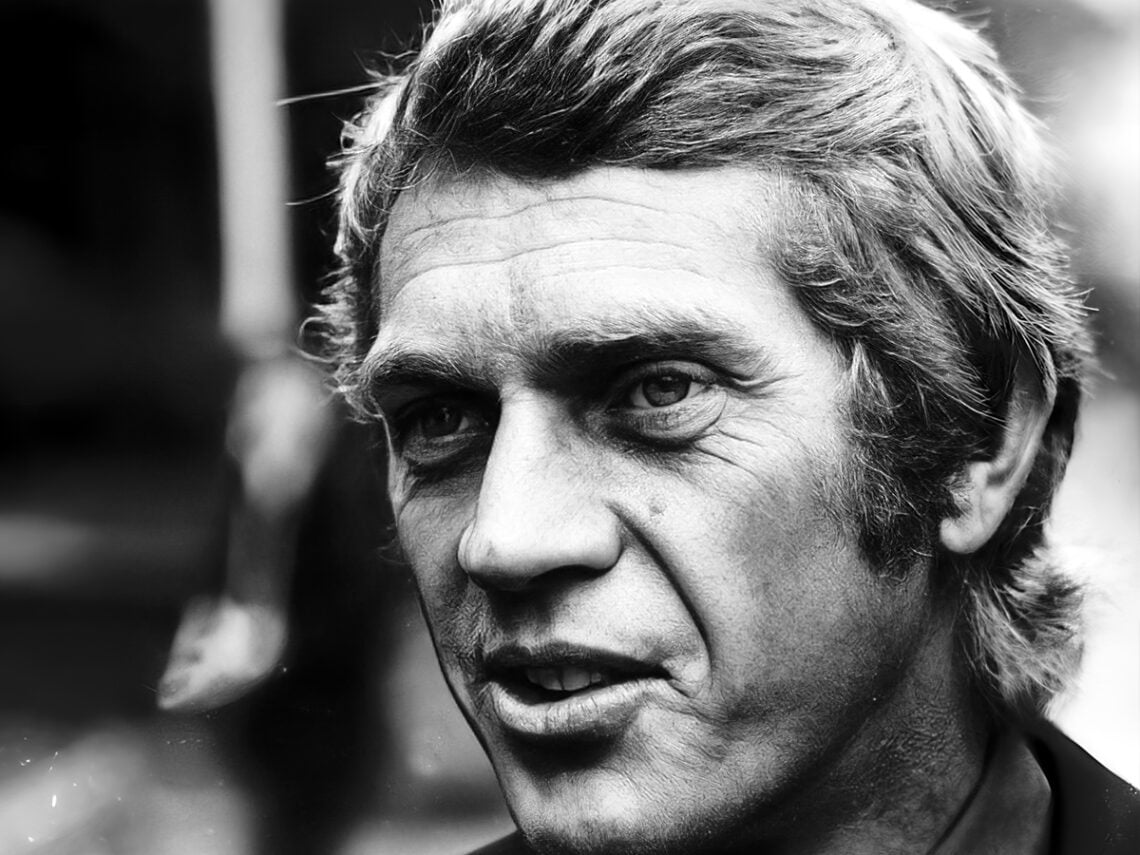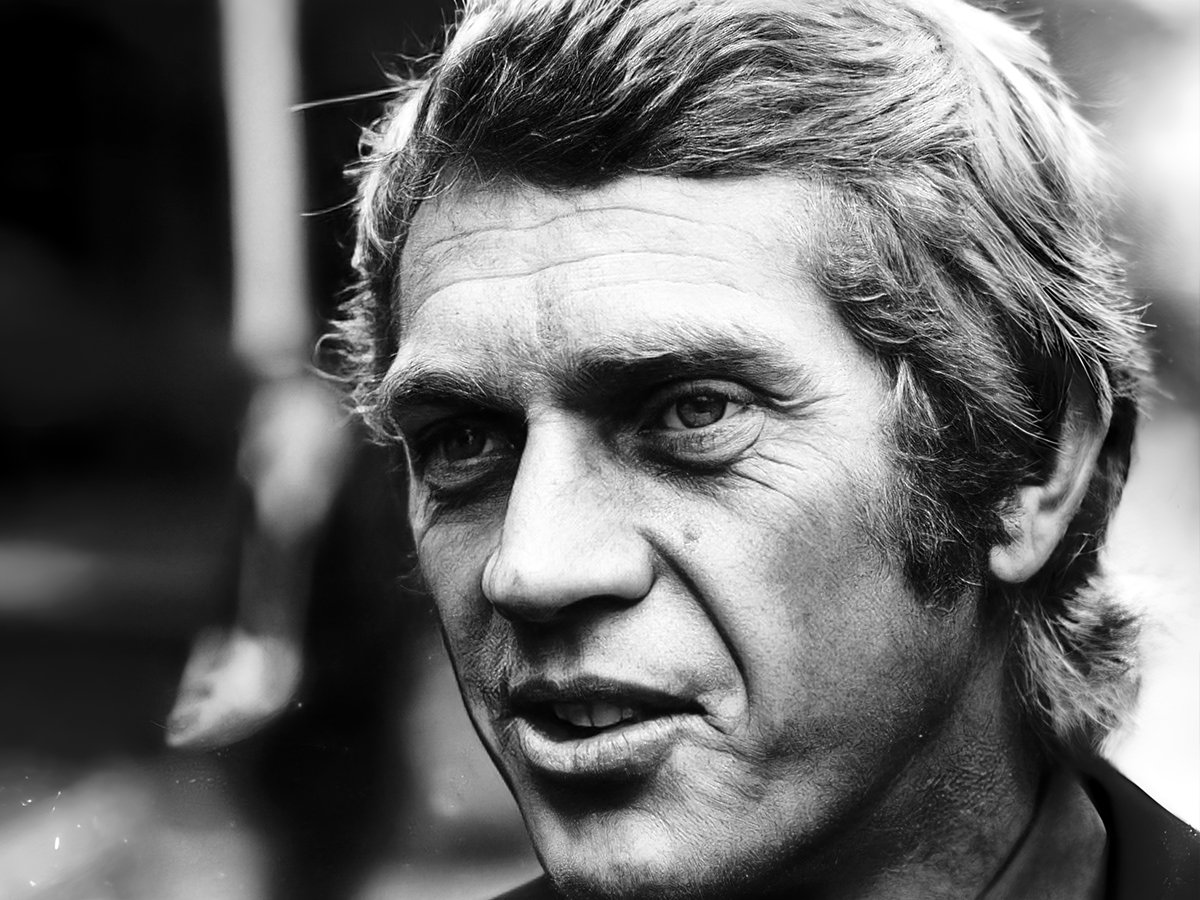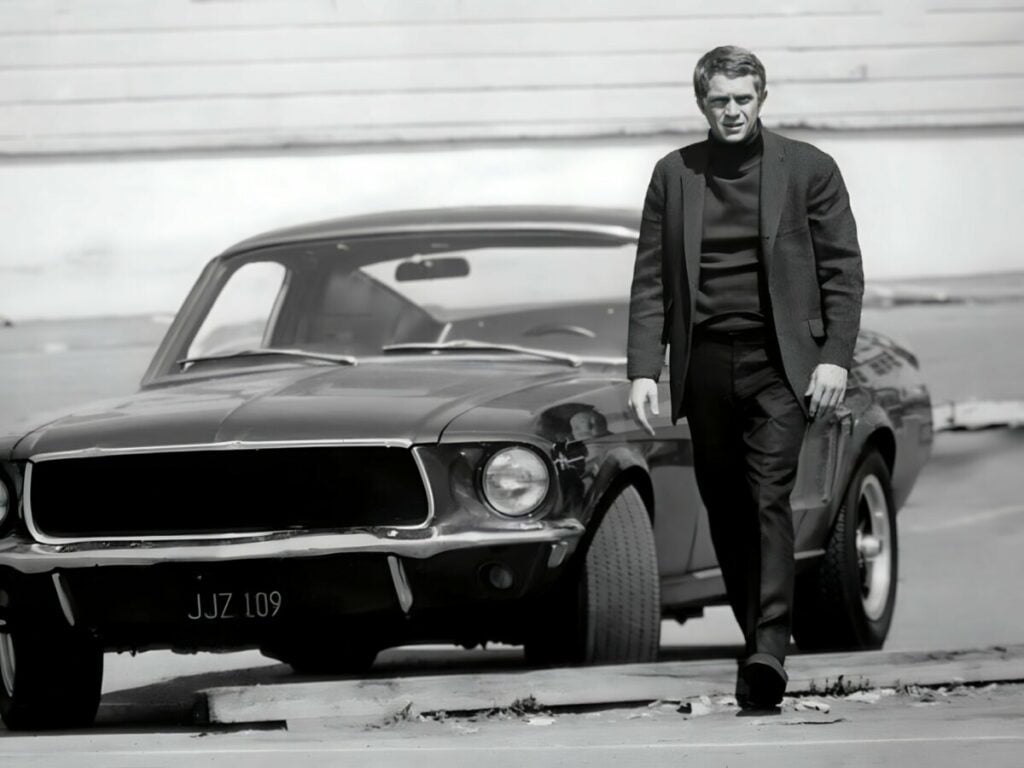
(Credits: Alamy)
Sun 24 August 2025 14:30, UK
Steve McQueen always had a love-hate relationship with acting. In fact, it’s often been theorised that if he had been as good at racing cars as he was at being American cinema’s ‘king of cool’, he’d have never even considered acting in the first place.
Even when McQueen was at the very top of the Hollywood food chain in the early ’70s, he always gave off the sense that he’d rather be anywhere else. Sure, film buffs adored him as the cool, smouldering presence in Bullitt, The Thomas Crown Affair, Papillon, and The Getaway. But for McQueen, the acting game never came close to the thrill he got from speed.
McQueen’s old man was a stunt pilot with the flying circus, but he did a runner on his mum before Steve had even turned up. As a kid McQueen hung onto these half-legendary tales of his dad’s daredevil flights, and they lit a spark in him which just so happened to turn into a hunger for fast cars, motorbikes, and anything else that reeked of danger and adventure.
That need for speed never left him. It carried him from childhood right into his 20s, to the point where, when he first tried his hand at acting in New York, he wasn’t waiting tables or bussing dishes like most hopefuls. Instead, he was tearing around on his Harley at the Long Island City Raceway, pulling in a cool hundred bucks a race, which amounts to about $1,200 in today’s money. When he first shot to fame in 1960 with The Magnificent Seven, he still wasn’t sure about this movie star nonsense. That’s why, just a year later, he burned rubber in a Mini Cooper as an entrant in the British Touring Car Championship…and came third.
All this is to say, McQueen knew he had a talent for being a movie star, but he truly loved racing. This push and pull finally came to a head when he signed the most lucrative acting contract in history ($12 million) to star in 1974’s The Towering Inferno alongside Paul Newman. McQueen was literally at the top of the mountain, but he didn’t enjoy shooting the film, and engaged in silly dick-measuring contests with Newman over their billing in the movie and on the posters.
The Towering Inferno, of course, wound up being another enormous hit for McQueen. It was the highest-grossing movie of 1974, and the world seemed to be his oyster in the wake of such dominance. Instead of seizing upon that momentum, though, McQueen exiled himself from Hollywood for four long years to put his full focus on motorbikes.
No one is quite sure why the iconic star chose to walk away at the height of his powers, but Greg Laurie, author of Steve McQueen: The Salvation of an American Icon, has a theory, and it’s a pretty simple one. “He just was fed up with it,” Laurie surmised. “He didn’t want it anymore, and so he walked away.”
Amazingly, McQueen even put a plan in motion to discourage Hollywood from pursuing him for roles. He told the industry, “I won’t even read a script for under $50,000,” figuring that would put most interested parties off sending him the latest blockbuster screenplay. After all, who wants to pay 50 grand to get an actor to read a script he’ll more than likely turn down anyway?
To his shock, though, the scripts didn’t stop coming, as he believed they would. Instead, “more scripts than ever came his way.” By removing himself from Hollywood and pricing himself out of contention, McQueen had inadvertently made himself more appealing than ever to directors and producers. Suddenly, he was like a toy that had been taken away from a child, yet now appeared to be the most fun plaything that had ever existed.
Hollywood wanted its forbidden fruit, and it offered McQueen the lead role in classic pictures like One Flew Over the Cuckoo’s Nest and Apocalypse Now, but the disillusioned star held firm. He was on a personal journey of discovery, growing his hair long and learning to fly an antique biplane – just like his elusive father – once he felt he’d accomplished everything he could on a motorbike. In the end, he didn’t return to Hollywood until 1978’s An Enemy of the People, and only made two more films before cancer, caused by exposure to asbestos in the Marines, tragically took his life at only 50.
Related Topics


